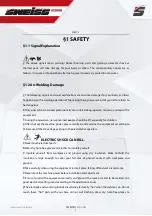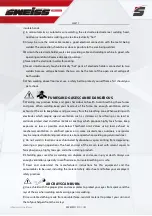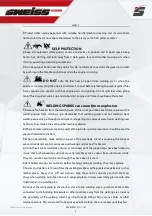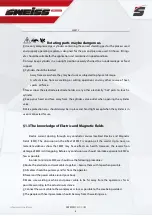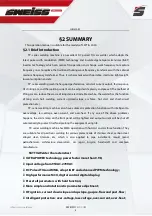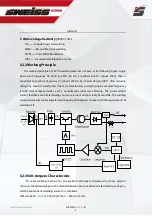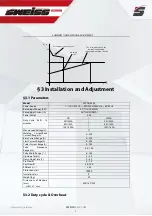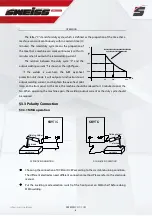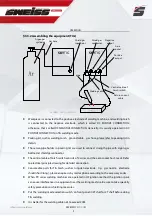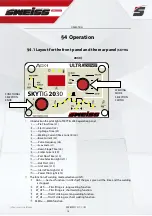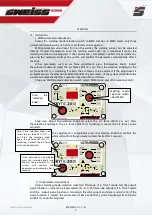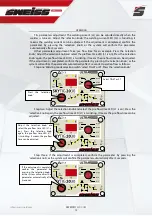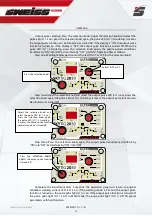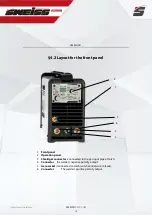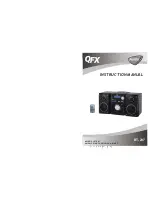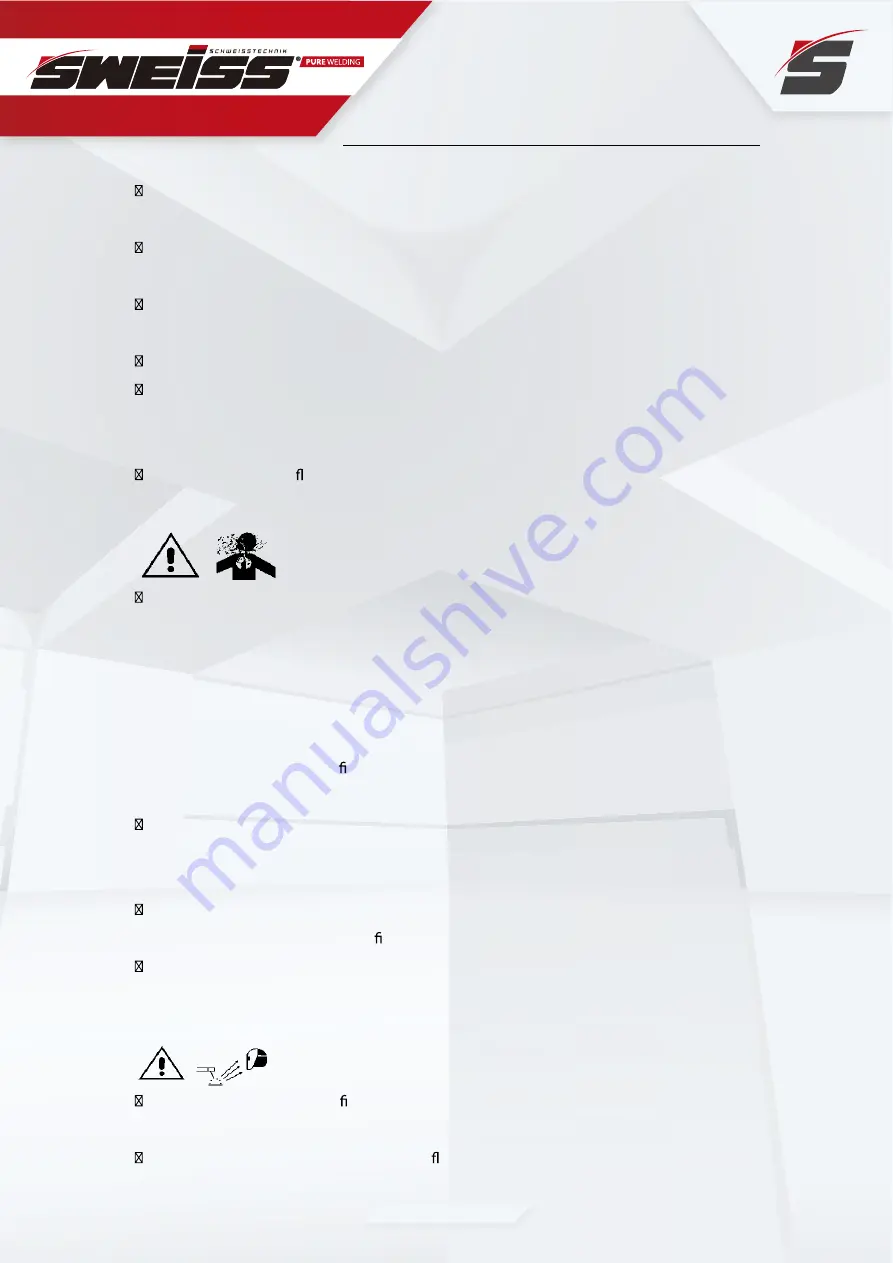
SWEISS
WELD.COM
info@sweissweld.com
SAFETY
insulate hands.
In semiautomatic or automatic wire welding, the electrode, electrode reel, welding head,
nozzle or semiautomatic welding gun are also electrically “hot”.
Always be sure the work cable makes a good electrical connection with the metal being
welded. The connection should be as close as possible to the area being welded.
Maintain the electrode holder, work clamp, welding cable and welding machine in good, safe
operating condition. Replace damaged insulation.
Never dip the electrode in water for cooling.
Never simultaneously touch electrically “hot” parts of electrode holders connected to two
welders because voltage between the two can be the total of the open circuit voltage of
both welders.
When working above oor level, use a safety belt to protect yourself from a fall should you
get a shock.
FUMES AND GASES CAN BE DANGEROUS.
Welding may produce fumes and gases hazardous to health. Avoid breathing these fumes
and gases. When welding, keep your head out of the fume. Use enough ventilation and/or
exhaust at the arc to keep fumes and gases away from the breathing zone. When welding with
electrodes which require special ventilation such as stainless or hard facing or on lead or
cadmium plated steel and other metals or coatings which produce highly toxic fumes, keep
exposure as low as possible and below Threshold Limit Values using local exhaust or
mechanical ventilation. In con ned spaces or in some circumstances, outdoors, a respirator
may be required. Additional precautions are also required when welding on galvanized steel.
Do not weld in locations near chlorinated hydrocarbon vapors coming from degreasing,
cleaning or spraying operations. The heat and rays of the arc can react with solvent vapors to
form phosgene, a highly toxic gas, and other irritating products.
Shielding gases used for arc welding can displace air and cause injury or death. Always use
enough ventilation, especially in con ned areas, to insure breathing air is safe.
Read and understand the manufacturer’s instructions for this equipment and the
consumables to be used, including the material safety data sheet and follow your employer’s
safety practices.
ARC RAYS CAN BURN.
Use a shield with the proper lter and cover plates to protect your eyes from sparks and the
rays of the arc when welding or observing open arc welding.
Use suitable clothing made from durable ame-resistant material to protect your skin and
that of your helpers from the arc rays.



